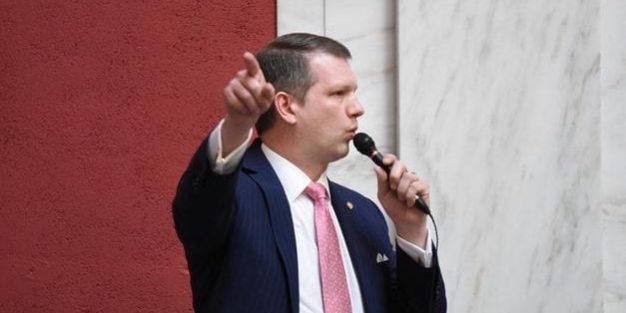MORGANTOWN, W.Va. West Virginia University Faculty Senate got an update on academic transformation activities and has begun to lay the foundation to combat anti-DEI (diversity, equity, and inclusion) legislation from state lawmakers and students using artificial intelligence.
The committee to restructure the Teaching Learning Commons has determined that the current structure of the unit does not meet the needs of students and faculty. Associate Provost Mark Gavin said they are going to essentially dissolve the existing unit by the end of the fiscal year, June 30, 2024. As a result, nine positions will be eliminated by that time, and during the transition, another nine will transition to WVU Online and seven to Information Technology Services (ITS).
“There is not an assessment of instruction that takes place in a way that translates to evaluation and facilitates the promotion and tenure or the annual evaluation process,” Gavin said. “Instructional effectiveness is focused on the course level rather than the programmatic level.”
The academic transformation review of regional campuses in Beckley and Keyser is underway and being spearheaded by Associate Provost for Curriculum and Assessment, Lou Slimak. The preliminary results will be presented to the Board of Governors in February, and final recommendations will be made in April. Soon, new names for recent consolidation colleges will be announced, and the leaders of those new units will be announced in about three weeks.
“Next week we plan to announce the name of the new college that will incorporate the College of Creative Arts, the College of Media, and several design programs from Davis College,” Provost and Vice President of Academic Affairs Maryanne Reed said. “We also plan to announce the name and structure of the new unit that will integrate the WVU Extension and the Davis College of Agriculture.”
Reed said the FY ’25 budget is under review and will be presented to Faculty Senate members in February, but that could be pushed out to March. But Reed said the preliminary numbers do look favorable.
“I can’t say there will be no cuts, but we do not anticipate anything that would lead to another institutional-level reduction in the force process,” Reed said.
Concern about anti-DEI legislation coming out of the current legislative session in Charleston is being debated among faculty members. Reed told members she has been working with Big 12 peer institutions to see how they reacted and will consider that information in any response.
“Oklahoma, as you may have seen, the legislature just passed a significant DEI bill, and I know they have managed to work within and around some of those changes,” Reed said.
The influence of artificial intelligence has reached WVU faculty and leadership. While there is no way to exactly determine whether artificial intelligence is artificial or not, Associate Provost Evan Widders urged faculty members to add something to course materials to provide a course of action if required.
“You should have some sort of thing in your syllabus that relates to AI so if it does become an issue in your class the office of Student Integrity has a policy to point to so they can interact with students,” Widders said.



